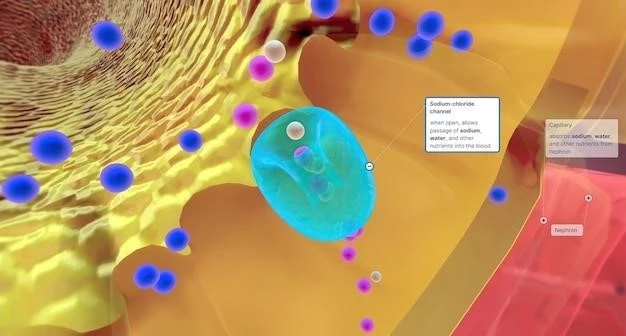Introduction to Mitochondrial Myopathy Lactic Acidosis
Mitochondrial myopathy, encephalopathy, lactic acidosis, and stroke-like episodes (MELAS) is a rare genetic condition affecting various body systems․ Learn more about its clinical manifestations and genetic origins․
Mitochondrial myopathy, lactic acidosis, and stroke-like episodes (MELAS) is a rare genetic disorder affecting multiple systems, predominantly the brain, nervous system, and muscles․ It is characterized by the presence of lactic acidosis, encephalopathy, and stroke-like symptoms, typically appearing in childhood; The condition is associated with mutations in mitochondrial DNA, leading to a range of symptoms such as muscle weakness, fatigue, seizures, and recurrent headaches․
Description of the disease and its primary characteristics
Mitochondrial myopathy, lactic acidosis, and stroke-like episodes (MELAS) is a rare genetic disorder affecting multiple systems, predominantly the brain, nervous system, and muscles․ It is characterized by the presence of lactic acidosis, encephalopathy, and stroke-like symptoms, typically appearing in childhood․ The condition is associated with mutations in mitochondrial DNA, leading to a range of symptoms such as muscle weakness, fatigue, seizures, and recurrent headaches․
Causes and variations of mitochondrial disorders
Mitochondrial disorders are a group of rare genetic conditions caused by mutations in mitochondrial DNA or nuclear mitochondrial genes, leading to a wide range of clinical manifestations․ These disorders can have varying presentations, and the diagnosis can be challenging due to the lack of genotype-phenotype correlation․ Lactic acidosis is a common feature seen in many patients with mitochondrial disorders, including MELAS syndrome․

Mitochondrial Encephalomyopathy Lactic Acidosis Stroke-like Episodes (MELAS)
Mitochondrial encephalomyopathy, lactic acidosis, and stroke-like episodes (MELAS) is a rare genetic condition that predominantly affects the brain, nervous system, and muscles․ This syndrome is characterized by symptoms such as lactic acidosis, encephalopathy, and stroke-like episodes, with onset usually in childhood․ Learn more about the clinical manifestations and genetic origins of MELAS to better understand this complex disorder․
Overview of MELAS syndrome and its genetic origins
Mitochondrial Encephalomyopathy Lactic Acidosis Stroke-like Episodes (MELAS) is an extremely rare genetic condition that primarily affects the brain, nervous system, and muscles․ This syndrome typically manifests in childhood and is characterized by the presence of lactic acidosis, encephalopathy, and stroke-like symptoms․ MELAS is associated with mutations in mitochondrial DNA, particularly the m․3243AG transition mutation٫ which is a common cause of this syndrome․
Clinical Manifestations of MELAS
Mitochondrial Encephalomyopathy Lactic Acidosis Stroke-like Episodes (MELAS) presents with various symptoms including muscle weakness, fatigue, recurrent headaches, and seizures․ Learn more about the signs associated with this complex genetic disorder․
Symptoms and signs associated with MELAS syndrome
MELAS syndrome presents with a range of symptoms including muscle weakness, fatigue, seizures, and recurrent headaches․ Additionally, common signs include lactic acidosis, encephalopathy, and stroke-like episodes, encompassing the multisystem nature of this genetic disorder․ Understanding these symptoms is crucial for identifying and managing MELAS effectively․
Diagnosis of Mitochondrial Myopathy Lactic Acidosis
Diagnosing mitochondrial myopathy, lactic acidosis, and stroke-like episodes (MELAS) typically involves various tests to detect the presence of lactic acidosis, muscle weakness, seizures, and other symptoms associated with the condition․ Understanding the diagnostic methods is crucial for identifying and managing this complex genetic disorder effectively․
Methods and tests used for diagnosing the condition
Diagnosing mitochondrial myopathy, lactic acidosis, and stroke-like episodes (MELAS) involves various tests to detect lactic acidosis, muscle weakness, seizures, and other associated symptoms․ Diagnostic methods may include genetic testing, muscle biopsies, brain imaging studies, and blood tests to evaluate lactic acid levels․ These comprehensive evaluations help healthcare providers identify and confirm the presence of MELAS syndrome and tailor appropriate treatment strategies․
Treatment Approaches for MELAS Syndrome
For individuals with mitochondrial myopathy, lactic acidosis, and stroke-like episodes (MELAS) syndrome, treatment focuses on managing symptoms and complications․ Therapeutic interventions may include dietary modifications, supplements (such as coenzyme Q10)٫ physical therapy٫ and medications to alleviate specific symptoms․ It is essential to work closely with healthcare providers to develop a comprehensive treatment plan tailored to address the multifaceted nature of MELAS․
Therapeutic interventions and management strategies
Management of mitochondrial myopathy, lactic acidosis, and stroke-like episodes (MELAS) involves a multidisciplinary approach focusing on symptom alleviation and quality of life improvement․ Treatment options may include nutritional support, such as a high-fat, low-carbohydrate ketogenic diet, coenzyme Q10 supplementation, physical therapy, and medications to control seizures and manage other symptoms․ It is essential for individuals with MELAS to work closely with a medical team to tailor a comprehensive treatment plan that addresses their unique needs and optimizes long-term outcomes․
Research and Advances in Mitochondrial Myopathy Lactic Acidosis
Stay informed about the latest research and advancements in understanding mitochondrial myopathy, lactic acidosis, and stroke-like episodes (MELAS) syndrome; Keeping up with current studies and breakthroughs is crucial for patients and healthcare providers aiming to enhance the knowledge and management of this complex genetic disorder․
Current studies and breakthroughs in understanding the disease
Research on mitochondrial myopathy, lactic acidosis, and stroke-like episodes (MELAS) is continuously evolving, with current studies focusing on identifying genetic mutations and exploring novel therapeutic approaches․ Recent breakthroughs have shed light on the complex pathophysiology of MELAS syndrome, paving the way for potential targeted treatments and improved management strategies․ Staying informed about these advancements is crucial for individuals affected by this rare genetic disorder․
Mitochondrial DNA Mutations and Their Role in MELAS
MELAS syndrome is primarily associated with mitochondrial DNA mutations, particularly the m․3243AG transition mutation, impacting the progression of this complex genetic disorder․ Understanding the role of mitochondrial DNA mutations in MELAS is crucial for diagnosis and targeted treatment strategies․
Impact of mitochondrial DNA mutations on disease progression
The presence of mitochondrial DNA mutations, particularly the m․3243AG transition mutation, plays a critical role in the progression and manifestations of mitochondrial myopathy, lactic acidosis, and stroke-like episodes (MELAS) syndrome․ These mutations affect the function of mitochondrial proteins involved in energy production, leading to the diverse symptoms and complications seen in individuals with MELAS․ Understanding the impact of these genetic mutations is essential for tailored management strategies and comprehensive care․
Complications Associated with Mitochondrial Myopathy Lactic Acidosis
Complications linked to mitochondrial myopathy, lactic acidosis, and stroke-like episodes (MELAS) include neurological issues, muscle weakness, seizures, and metabolic disturbances․ Stay informed on potential complications and necessary management strategies․
Potential complications and risks linked to the disease
Mitochondrial myopathy, lactic acidosis, and stroke-like episodes (MELAS) syndrome can present various risks and complications due to its impact on multiple body systems․ Common dangers include neurological problems, muscle weakness, seizures, metabolic imbalances, and complications from lactic acidosis․ It is vital for individuals with MELAS to be vigilant in managing these risks and seeking appropriate medical care to mitigate potential complications effectively․
Prognosis and Quality of Life for Individuals with MELAS
Understanding the prognosis and quality of life for individuals with mitochondrial myopathy, lactic acidosis, and stroke-like episodes (MELAS) is crucial․ While MELAS syndrome can have a significant impact on daily life due to its multisystemic nature, advancements in diagnosis and treatment offer hope for improved outcomes․ By actively managing symptoms, seeking regular medical care, and adopting lifestyle modifications, individuals with MELAS can enhance their quality of life and strive for better long-term prognosis․
Lifestyle considerations and long-term outlook for patients
For individuals living with mitochondrial myopathy, lactic acidosis, and stroke-like episodes (MELAS) syndrome, lifestyle modifications play a crucial role in managing symptoms and improving quality of life․ It is essential for patients to prioritize healthy eating habits, regular physical activity within their limitations, sufficient rest, and stress management to support overall well-being․ Additionally, establishing a strong support network, including healthcare providers, family, and community resources, can help individuals navigate the challenges associated with MELAS and enhance their long-term outlook․

Resources and Support for Individuals Affected by Mitochondrial Disorders
Access reliable resources and seek support for coping with mitochondrial disorders like mitochondrial myopathy, lactic acidosis, and stroke-like episodes (MELAS)․ Utilize online platforms, patient advocacy groups, and healthcare providers for guidance and assistance in managing the complexities of these genetic conditions․ Remember, you are not alone in this journey, and there are resources available to help navigate the challenges associated with mitochondrial disorders․
Information on organizations, communities, and assistance available
Access support and assistance for individuals affected by mitochondrial disorders through organizations like the Mitochondrial Medicine Society, patient advocacy groups, and online communities․ These resources can provide valuable information, emotional support, and guidance on managing the challenges associated with mitochondrial myopathy, lactic acidosis, and stroke-like episodes (MELAS) syndrome․ Engaging with these networks can help individuals and their families navigate the complexities of the condition and connect with others facing similar experiences․
